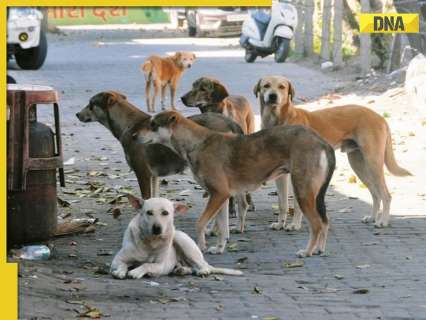
Detailed records of sterilisation, vaccination, feeding, and medical care must be maintained, the guidelines read.
The Delhi Department of Urban Development has issued guidelines for managing the street dog population, eradicating rabies, and reducing human-dog conflict in the city, following directives from the Supreme Court. “Under the new framework, the responsibility for implementing the programme rests with the MCD, NDMC, and DCB. At present, the MCD operates 20 ABC centres through NGOs for the purpose of sterilisation and vaccination of street dogs,” it stated.
What are the new guidelines?
- The guidelines specify that local authorities should only engage with Animal Welfare Organisations (AWOs) recognised by the AWBI.
- Veterinarians, handlers, and para-veterinary staff of these organisations are required to undergo training at the ABC Training Centre, jointly operated by the AWBI.
- No programme related to street dog management is allowed without proper certification from the Board.
- Infrastructure at each centre must include sufficient kennels, operating theatres with power backup, specially modified transport vans, and facilities for the safe disposal of waste.
- Centres are required to have CCTV coverage in operation and kennel areas, with recordings maintained for at least 30 days, it stated.
- Detailed records of sterilisation, vaccination, feeding, and medical care must be maintained, the guidelines read.
- The guidelines also stated that expenses for sterilisation and vaccination should be reimbursed to the engaged AWOs based on proper verification.
- A Local ABC Monitoring Committee must be formed as per the rules, which will meet monthly to assess the programme’s progress and investigate complaints.
- Monthly reports must be submitted to the committee, and annual reports shared with the AWBI by 31 May each year.
- It has been made clear that no street dog should be relocated or killed.
Feeding spots for dogs
- Local authorities, along with RWAs and residents, are expected to identify appropriate locations for feeding street dogs, keeping in mind their territorial nature and the safety of children and senior citizens.
- Cleanliness at feeding points must be maintained, and leftover food should be disposed of properly.
- Signboards must clearly mark feeding locations, and feeding at other sites is prohibited. Legal action may be taken against those obstructing responsible feeding activities.
READ | Monorail services in Mumbai to remain temporarily suspended from Sept 20; here’s why
Dogs registration
- Pet owners are required to register their dogs if they are above three months of age.
- Registration must be renewed annually and linked to rabies vaccination records.
- Dogs adopted from Indian breeds are exempt from registration fees, and their sterilisation and first vaccination will be provided free of cost at designated centres.



